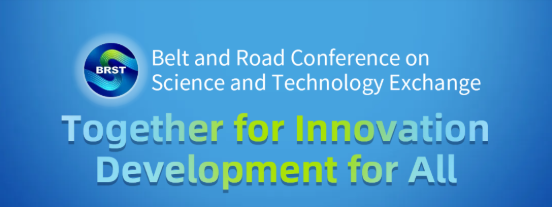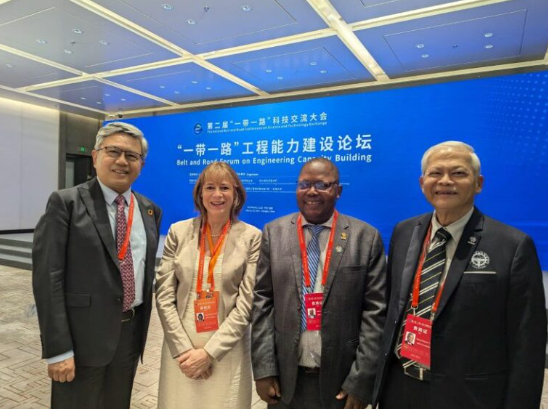WESF plays a role in promoting standardization and eliminating global trade barriers.

Between 10 and 12 June 2025, I spent three days at the Second Belt and Road Forum on Engineering Capacity Building in Chengdu, China, through my role as President of the Commonwealth Engineers’ Council (CEC), at the invitation of my WFEO colleague and Past President Prof. Gong Ke from the Tianjin University and the China Association for Science and Technology (CAST).
The Belt and Road Forum is a huge international event bringing together participants from the government, industry, academia, and NGOs of the countries of the Belt and Road Initiative – a programme which includes over 150 countries and aims to build a number of trading corridors from China along routes which include road, rail, and maritime, and aims to encourage global trade and bring economic growth to the countries involved.

From left to right: Prof. Gong Ke; Dawn Bonfield; Martin Manuhwa, Chair of the WFEO Committee on Engineering Capacity Building and Seng-Chuan TAN, WFEO President-Elect
Whilst this huge infrastructure project has detractors, there is no doubting that the speed and scale of its growth is hugely impressive, and that the act of bringing together representatives from these countries for talks about building shared standards, closer ties, joint initiatives, all under the premise of increasing prosperity whilst at the same time tackling climate change, biodiversity loss, poverty, hunger, access to education and industry – done in a collaborative way, is preferable to the contrasting alternative of restricting trade, planning for conflict and polluting the planet.
The Commonwealth has 56 member countries and approximately two thirds of its members are also members of the Belt and Road Programme, so this is of significant importance to the Commonwealth.
The conference consisted of a number of different thematic areas, each chosen for their importance to the overall success of the programme, and the stream I spoke at was the Engineering Capacity Building theme. Engineers have been rightly identified as one of the key assets of the programme, without which the infrastructure will simply not get built. Developing engineering capacity and capability in the countries involved is a way of ensuring that the infrastructure is able to benefit the local economy, and can be operated and maintained in country once completed. This, however, needs to be achieved through the use of a local workforce employed alongside Chinese nationals, ensuring that local concerns, such as the use of indigenous knowledge and materials, are used, and that local customs and context are respected and retained.
During the event, an agreement to form an International Federation of Engineering Societies for the Belt and Road (IFES) was signed by founding members and this organisation supported by CAST will address the evolving challenges and opportunities of engineering education, certification, mutual recognition, and career advancement, with the potential to do much more around setting standards and a shared agenda for action. This organisation is sure to be significant and influential in all manner of ways going forwards.